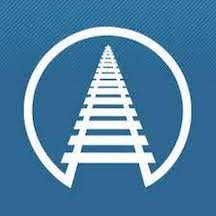South Africa’s rail expansion plan links Soweto to Johannesburg
(Bloomberg)—South Africa’s only high-speed rail network is drawing up a multibillion rand plan to expand outside Johannesburg and Pretoria, joining a potential bonanza of infrastructure projects the government says are key to reviving the economy.
A proposal for the venture is awaiting sign-off by the National Treasury, William Dachs, chief executive officer of the Gautrain company, said in an interview. Investment and loans would come from a mix of private investors and state institutions such as the Development Bank of Southern Africa, he said.
“Cities that do not plan around public transport suffer great financial and economic consequences,” said Dachs.
South African President Cyril Ramaphosa has placed infrastructure at the heart of his plan to revive an economy devastated by the coronavirus pandemic, under-investment and corruption. He sees the government spending 100 billion rand ($6.2 billion) on various projects, with the aim of attracting 10 times as much private investment within four years. His plans include the privatization of some older railway systems and routes, which have struggled with years of mismanagement, vandalism and theft.
The Gautrain expansion would add a further 150 kilometers (93 miles) of track to the existing 80-kilometer network, connecting more remote destinations such as Soweto, which has a population of about 2 million people. The township was separated from Johannesburg during the apartheid era, when the White-minority government created settlements for Black people away from major cities and places of employment, while failing to provide adequate public transport.
Ramaphosa’s infrastructure initiatives—including the Gautrain expansion—would help to ease South Africa’s chronic unemployment problem. The number of people with jobs in South Africa fell to the lowest in nine years in the second quarter, while more than 20 million people are classed as economically inactive.
The Gautrain, whose operator has shareholders including French rail group RATP Dev, was built as part of South Africa’s preparations to host the 2010 soccer World Cup.
The transport system has an excellent punctuality record and minimal security incidents, according to Dachs. Every rand the government has invested in the group has made a return of at least double, he said. The rail company is named after Gauteng province and the name translates as ‘golden train,’ a reference to Johannesburg’s 19th century origins as a gold-mining town.
©2020 Bloomberg L.P.
Similar Stories
INVESTING IN AMERICA: Biden-Harris Administration announces $635 Million to continue expanding zero-emission EV charging and refueling infrastructure
New investments from the Bipartisan Infrastructure Law will add more than 11,500 electric vehicle charging ports and expand hydrogen and natural gas fueling infrastructure in communities nationwide
View Article
Consolidated Chassis Management expands leadership team with four key hires
View Article
CMA CGM Brazil enhances its intermodal sustainable solutions
View Article
AAR reports rail traffic for the week ending January 04, 2025
View Article
ATDA members vote to ratify national agreement with NCCC
View Article
Savage Wellington Transload Terminal to provide Utah crude-by-rail connection
View ArticleGet the most up-to-date trending news!
SubscribeIndustry updates and weekly newsletter direct to your inbox!





